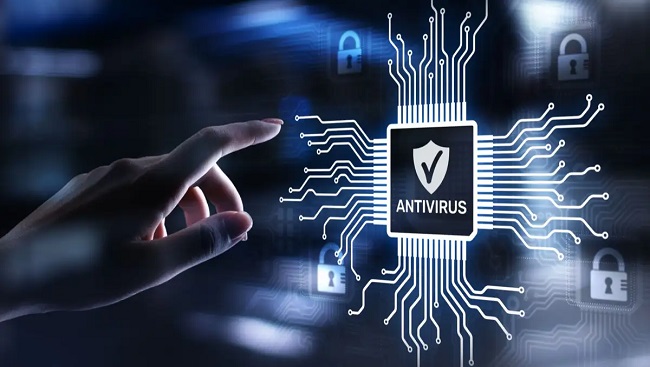With all the factors involved, picking the finest anti-virus program for your computer can seem like a Herculean undertaking. You could be looking for something as simple as virus protection for your computer, or as complex as a system that can safeguard your entire home from intruders.
In case you’re having trouble settling on a single option, our evaluations will help you choose the finest antivirus software for your needs.

Compare & Find The Best Antivirus Software For Your Devices
Here is a list of best antivirus softwares for your device:
Read Also:
1. Bitfender
Virus protection software can be purchased in two flavors: those that do the bare minimum and those that go above and beyond. That’s why you need Bitdefender’s antivirus software plus. Many different functions are represented by the Plus symbol.
There is ransomware defense, a secure browser for financial transactions, VPN security for connections, an ad-blocking function, automatic detection of missing security patches, a user-friendly password manager, and much more.
Despite having “antivirus” in the product’s name, it has more security-related features than many other security suites. Moreover, it also functions as a reliable anti-virus tool. It consistently receives flawless or near-perfect results from third-party testing facilities, and it also performs exceptionally well in several of our in-house experiments.
Also, testing validated the effectiveness of its ransomware-specific defensive mechanism. And because of its Autopilot function, you, the user, will experience minimal disruption.
2. Webroot
Webroot SecureAnywhere AntiVirus is, hands down, the most compact antivirus software we’ve ever used. One diskette was sufficient back in the day. Webroot’s local footprint is small because the company’s brains are on the cloud.
It eliminates recognized malware on sight, as do most antivirus programs, but it takes extra care with unknown threats. Information about any unidentified software is uploaded to the cloud, and the system then provides the program with a sandboxed environment in which to execute, preventing any changes it makes from being permanently ingrained in the operating system.
However, if the cloud-based analysis concludes that the software is dangerous, Webroot immediately removes the malware and undoes all changes made to the system. Through our experiments, we have shown that this method can undo the impacts of ransomware.
3. McAfree
It is recommended that anti-virus software be installed on the primary production machine. Having that security extended to your other gadgets is preferable. With McAfee AntiVirus Plus, you can protect all of your devices—Windows, macOS, Android, and iOS—with just one subscription.
When every node in your network is protected from outside interference, everyone in it benefits. Independent labs generally give high marks to McAfee, with the odd exception. It has performed exceptionally well in our own hands-on tests.
However, it offers more than just antivirus protection thanks to other features like Ransom Guard, a basic firewall, and a mechanism to prevent cryptojacking.
4. ESET NOD32
When you launch ESET NOD32 Antivirus and see the blue-eyed cyborg mascot, you can rest certain that you are protected by cutting-edge technology. It achieves excellent results in some of our own testing and in some other lab tests, which is always a plus.
The UEFI (Unified Extensible Firmware Interface) scan that ESET offers is a step up from the standard boot sector scan, and it’s just one of several innovative high-tech features that set it apart from the competition.
Even the Windows Management Instrumentation (WMI) database is scanned for malicious activity. To fully appreciate and take use of these cutting-edge options, you will need some familiarity with technology.
The Host Intrusion Prevention System (HIPS) is designed to do the same thing, detecting and preventing attacks that exploit flaws in the system or widely used software.
5. G Data Antivirus
According to the G Data website, the company created the first antivirus software in 1985. G Data Antivirus has a rich history, and may have been among the first. Recent evaluations by two of the four reputable labs we keep tabs on have found success for this time-honored instrument.
The highest possible rating from AV-Test, and passing to flawless results from AV-Comparatives. To a near-perfect degree, G Data protected us from malware and harmful downloads in our hands-on tests.
This antivirus program has evolved to include a wide range of supplementary safety features. With the traditional antivirus turned off, its behavior-based ransomware prevention layers caught 50 percent of the samples we tossed at it.
Read Also:
Conclusion
AI is not simply a hot topic in the media. Occasionally it composes articles, poems, or application essays. Malware developers also rely on AI when coming up with new malicious programs.
Yet, there’s no need to panic. The likes of ChatGPT aren’t creating novel forms of malware because they can’t. They’re basically simple aids for writing code. Human intelligence may help you secure your devices from malware, regardless of who created it, by choosing robust antivirus software and keeping it up to date.
But which virus protection software should you use? So many of them exist! To help you find the best antivirus software, we’ve reviewed more than 40 different programs. We’ve compiled a list of the top 10 products based on our testing, and we’ve included some tips for choosing the best antivirus software for your needs after the product lists.


